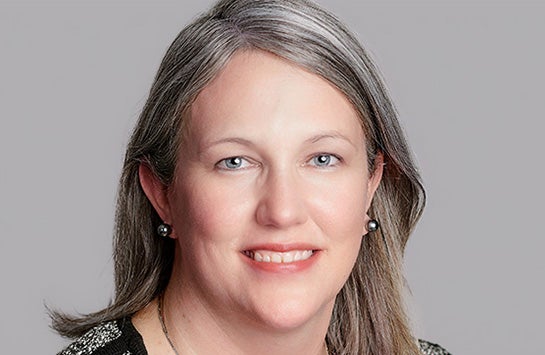How Are Data Skills Used in Healthcare? One UIC MESA Grad Shares Her Path
How Are Data Skills Used in Healthcare? One UIC MESA Grad Shares Her Path

In a world increasingly driven by data, knowing how to gather, interpret, and explain information is valuable, especially in fields where decisions carry real weight. That’s where UIC’s online Master of Education in Measurement, Evaluation, Statistics, and Assessment (MESA) program comes in. Designed for working professionals, the program blends hands-on learning with a strong foundation in research and analysis. Whether students aim to advance in their current roles or pivot into new ones, MESA offers the flexibility and depth to support those goals.
For Sarah Pelter, the MESA program helped bridge the gap between her nonprofit background and the highly technical world of medical certification testing. Now serving as Director of Research and Measurement at a global organization, she leads the team responsible for ensuring the fairness and accuracy of medical certification exams. In this spotlight, she reflects on how the program gave her the tools to grow into the role and how it continues to shape her approach to data-driven decisions in the medical certification field.
Can you share a brief overview of your background?
I’m the Director of Research and Measurement at Inteleos, a certification and education organization that oversees about 19 high-stakes medical certifications. Most of these are in diagnostic imaging, like MRI, CT, and nuclear cardiology. We also offer a wide range of ultrasound and sonography specialty exams.
My team serves as the psychometric arm of the organization. We analyze our certification assessments to ensure our test questions are fair, valid, and reliable. We’re also involved in research, including some exciting work in artificial intelligence. To protect the validity of our exams, we perform (with help from outside partners) data forensics. We analyze item-level statistics and test-taker data to help identify potential cheaters. That part is actually really fun! I could never be a law enforcement agent—I’m too much of a chicken—but using statistics to uncover bad actors? That’s exciting and very satisfying work.
What Led You to Pursue UIC’s Master of Education in Measurement, Evaluation, Statistics, and Assessment (MESA) Program?
My background is in nonprofit work, and I have my first master’s degree in nonprofit management. I originally joined Inteleos to work with governance and manage their board structure. I loved the work, but over time, I became more and more interested in the statistical side of testing. The only issue was that I had no formal training in it.
As it happened, the woman leading the psychometrics department at the time was retiring, and I was asked to transition into that role. So, I moved over without any formal background in psychometrics or testing. In order to support the team and ensure our work was of the highest quality, I began to explore programs that would provide the foundational knowledge to lead my team effectively and make informed, data-driven decisions.
A colleague I worked with mentioned UIC’s MESA program, and I already knew of a few alumni through certification conferences. The program had a strong reputation.
It was also one of the few programs that fit my life at the time. I had small kids and a full-time job, and I wasn’t in a position to quit working and go back to school full-time. I needed something flexible, asynchronous, and directly relevant to my team’s work. The MESA program checked all those boxes.
How the MESA Degree Can Set You Apart in a Competitive Field
The MESA program has been beneficial for my career. It has armed me with the knowledge to better support my team, make better decisions for the organization, and improve the quality of our assessment and educational products.
As I mentioned earlier, UIC’s MESA program has an excellent reputation in the certification field. People in the industry know this program, and that recognition has definitely helped me professionally.
I’ve brought on alumni from the MESA program because I know firsthand the kind of training and preparation they receive. One of my team members came through the program, and he’s been an incredible asset. He’s now a manager in our department and doing fantastic work.
Advice for Prospective Students Considering UIC’s Online MESA Program
One piece of advice I’d give prospective students is to look at the breadth of the curriculum offered in the MESA program. It can seem intimidating at first, especially if you don’t have a background in statistics. When you hear terms like Rasch, IRT, or G Theory, it’s easy to think, “Oh my gosh, I have no idea what that means.”
But the faculty does a great job of breaking things down into manageable pieces. Even if you’re coming in without prior experience, they help quickly bring you up to speed. So don’t let unfamiliar terms scare you away.
I also found taking courses outside my immediate experience, like program evaluation, incredibly valuable. That wasn’t something I had done before, but I found it fascinating. While I don’t currently work in educational assessment, it’s a significant part of the industry and something my organization is looking to expand into. Having exposure to that area has been valuable.
When evaluating a program, I think it’s important not to pigeonhole yourself. The MESA program offers a broad curriculum with many different specialties to explore. That flexibility lets you discover what interests you and what might be most valuable for your career.